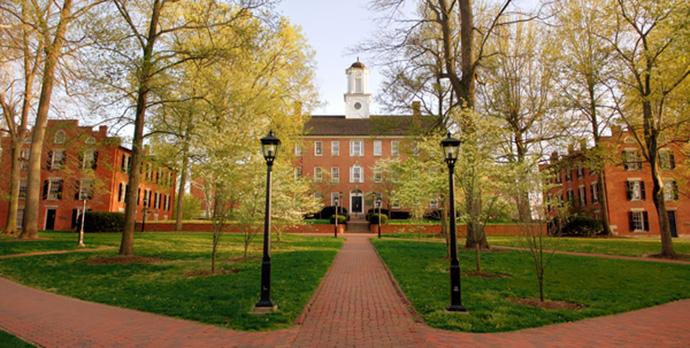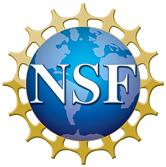
Overview of Our REU Program

REU Site: Treatment-Related Research for Youth with Social, Emotional and Behavioral Problems
The goal of this REU site program is to provide undergraduate students (psychology, social work, biology, pre-med, education) with an in-depth, hands-on experience focused on gaining clinical research skills for children with social, emotional and behavioral problems.
Students are trained in the application of the scientific method to develop hypotheses and trained on how to design and conduct research studies on treatment-related issues for children with social, emotional and behavioral problems. Students are also trained in the ethical conduct of research.
Students are mentored by full-time, Ph.D.-level faculty members from psychology and medicine who have strong programs of research. Faculty members’ expertise includes:
- Services for children and adolescents with social, emotional and behavioral problems
- Parent-related stress and engagement in services for children’s SEB
- Factors impacting school services for SEB
- Decision-making for SEB services among parents, providers, teachers and children
- Integrated health systems for children and families with SEB living in rural or underserved settings
We have an opportunity to assist the career trajectories of all students, including those who have not previously been exposed to such opportunities, and in doing so assist in enriching students’ graduate school prospects, career paths and career options. Additionally, some students who will participate in our REU may come from a field related to psychology, such as education or social work, where they may have had less exposure to working on clinical research projects.
Program Goals
There are four aims for undergraduate students who participate in this REU:
- Gain experience conducting an independent project in the realm of treatment-related research for youth with SEB
- Have educational experiences alongside research experiences that will allow them to become better scientists
- Be mentored in the requisite skills to apply to and get into top-notch graduate schools in research-related fields
- Gain unique experience transferring clinical research findings from science to practice and from practice to science
Two types of activities, research and educational, will allow these aims to be met. The research conducted by students with their mentors will advance understanding of treatments and treatment-related issues for children with SEB. With regular and frequent contact with mentors, students learn all aspects of the research process, including hypothesis formulation, integration and analysis of scientific literature, research design, data collection, data analysis and the presentation of research findings.
Students also attend seminars focused on statistics, research methods and the graduate school application process. To maximize exposure to multiple areas of research, they attend seminars in which faculty mentors present data from recent research. Students receive considerable training in the presentation of research findings and have opportunities and financial support to present their findings at regional and national conferences focused on school mental health, treatments and treatment-related concerns for youth with SEB. Students and mentors work together to submit research reports for publication in peer-reviewed academic journals.
Eligibility Requirements
Students must have at least a 3.0 GPA in their undergraduate courses and must be a U.S. citizen or permanent resident. All students who meet these initial requirements are invited to apply. Students who have taken research methods will be more competitive for the program, although this is not an exclusionary criterion. Each student must be able to commit to the 7-week on-campus program (i.e., middle of June through end of July).
Student Stipend
Each student will receive $4,500 for the summer experience. The stipend will be received by the end of the program. Additionally, students will receive campus food (15 meals a week) and housing, conference travel and research incentives. Students will be housed in campus dormitories and will likely share a room with another REU student.
Application Process
- Use our online form to submit your application using the link below.
- Upload a Statement of Purpose (1 page, single-spaced) detailing why you want to participate in the program and what you hope to gain, as well as a summary of potential research foci.
- Upload an official or unofficial transcript.
- Upload your resume/Curriculum Vitae
- Request a letter of recommendation on your behalf by including recommender's name in online application portal.
- Your recommender must submit this letter by March 7, 2025 at 5 p.m. EST.
- If you have any questions, please contact Dr. Fran Wymbs at wymbsf@ohio.edu.
- All applications must be submitted by March 7, 2025, at 5 p.m. EST.
Details and Disclaimer

This program is supported by the National Science Foundation under grant award number 2050706.
Ohio University is grateful to the National Science Foundation - Research Experience for Undergraduates for supporting the work of talented REU students.
Any opinions, findings and conclusions or recommendations expressed in this material are those of the author(s) and do not necessarily reflect the views of the National Science Foundation.
Principal Investigator
Fran Wymbs, Ph.D.
Department of Family Medicine
Heritage College of Osteopathic Medicine
Ohio University
740.593.2289
wymbsf@ohio.edu
Co-Principal Investigator
Brian Wymbs
Department of Psychology
College of Arts and Sciences
Ohio University
740.593.1064
wymbs@ohio.edu
Explore Our Program
We are currently applying for renewal funding to offer our program for another 3 years. Pending successful renewal funding, applications are due 3/7/25.